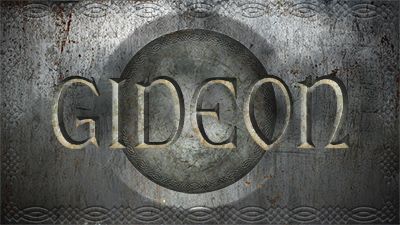I’m down with any genre you select, Ely. Guys? Maybe we can make an effort not to be genre snobs. It’d be cool if, as a book club full of writers, we could actually branch out of our preferred reading pockets and read something altogether new because, I mean, haven’t you heard? There isn’t a genre incapable of being written well by the right person. And, well, there’s a lot of bad writers out there too. Books clubs steer away from them as a rule. |
- Getting Started
- Help
- Master Lists
- Useful Links
- Features
The Mizahar Book Club!
(This is a thread from Mizahar's fantasy roleplay forums. Why don't you register today? This message is not shown when you are logged in. Come roleplay with us, it's fun!)-

Caelum - The best way out is through.
- Posts: 1961
- Words: 1093768
- Joined roleplay: March 18th, 2010, 10:27 pm
- Location: Riverfall
- Race: Ethaefal
- Character sheet
- Storyteller secrets
- Scrapbook
- Journal
- Plotnotes
- Medals: 11
-


-


-


-


-


-

Gossamer - Words reveal soul.
- Posts: 21150
- Words: 6362535
- Joined roleplay: March 23rd, 2009, 4:40 pm
- Location: Founder
- Blog: View Blog (24)
- Race: Staff account
- Office
- Scrapbook
- Plotnotes
- Medals: 11
-


-


-


-


-


The Mizahar Book Club!
now while he stands tough
notice that this man did not have his hands up
notice that this man did not have his hands up
- Elsa Marin
- Player
- Posts: 120
- Words: 36964
- Joined roleplay: December 31st, 2013, 12:20 am
- Race: Human
- Character sheet
- Scrapbook
- Plotnotes
-

Nyxie Nadira Draer - slaver & swindler
- Posts: 232
- Words: 111204
- Joined roleplay: December 14th, 2013, 3:05 am
- Location: Kenash
- Race: Human, Svefra
- Character sheet
- Storyteller secrets
- Scrapbook
- Plotnotes
- Medals: 2
-


-

Shane Wallsly - Success Is The Only Option
- Posts: 426
- Words: 284445
- Joined roleplay: September 30th, 2013, 9:10 am
- Location: Ravok
- Race: Human
- Character sheet
- Storyteller secrets
- Scrapbook
- Medals: 2
-


The Mizahar Book Club!
Nari | Common
Italics are Telepathic
-

Sira - Player
- Posts: 963
- Words: 737381
- Joined roleplay: July 4th, 2010, 3:42 am
- Race: Kelvic
- Character sheet
- Storyteller secrets
- Scrapbook
- Plotnotes
- Medals: 5
-


-


-

-

Gideon - Player
- Posts: 78
- Words: 87562
- Joined roleplay: August 9th, 2012, 3:32 pm
- Race: Human
- Character sheet
- Storyteller secrets
- Scrapbook
The Mizahar Book Club!
Last edited by Aurorah on January 16th, 2014, 12:18 am, edited 1 time in total.
'For every candle lit, another shadow is cast'
- Aurorah Blackbourne
-

Aurorah - Excuse me while I go kiss the sky
- Posts: 21
- Words: 4355
- Joined roleplay: January 9th, 2014, 12:00 am
- Race: Kelvic
- Character sheet
- Scrapbook
The Mizahar Book Club!
06/09I apologize for the bout of silence! I was in a car accident this past Friday and while I am okay, I am a bit banged up. I have several fractures in my right side, including my hand. This will considerably slow my posting rate while I am doped up on pain meds and limited to one hand. I don't have an exact date that I will be back to full capacity, but the doctor estimates around three weeks at minimum. I will try and continue posting updates.
06/25While I am in much better condition and able to type fairly decently now, any large amounts of typing eventually start to bring some pain. I will be pumping out replies soon, but they will likely be much shorter than normal.
06/25While I am in much better condition and able to type fairly decently now, any large amounts of typing eventually start to bring some pain. I will be pumping out replies soon, but they will likely be much shorter than normal.
-

Matthew - Malfunctioning
- Posts: 1206
- Words: 1100152
- Joined roleplay: June 24th, 2013, 9:37 pm
- Race: Human
- Character sheet
- Storyteller secrets
- Journal
- Plotnotes
- Medals: 5
-


-


-

Who is online
Users browsing this forum: No registered users and 0 guests





